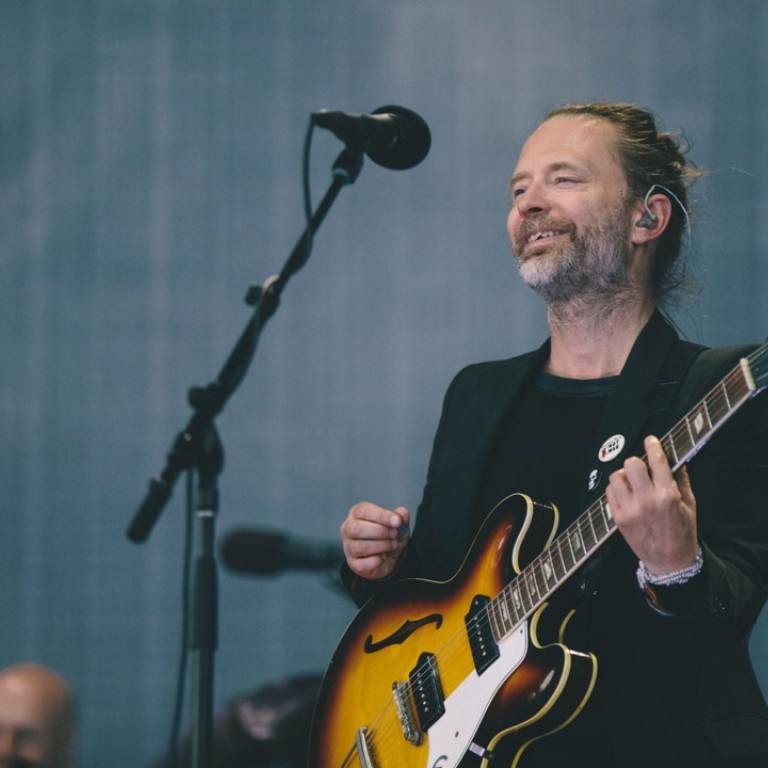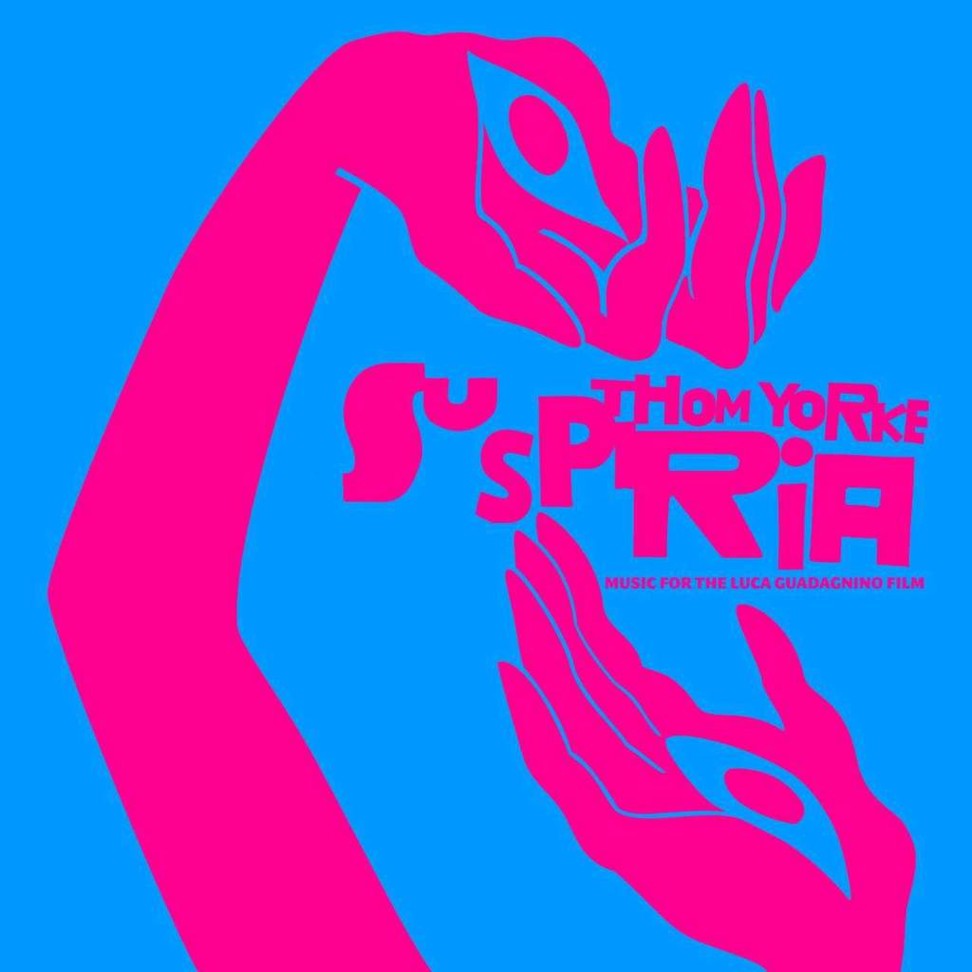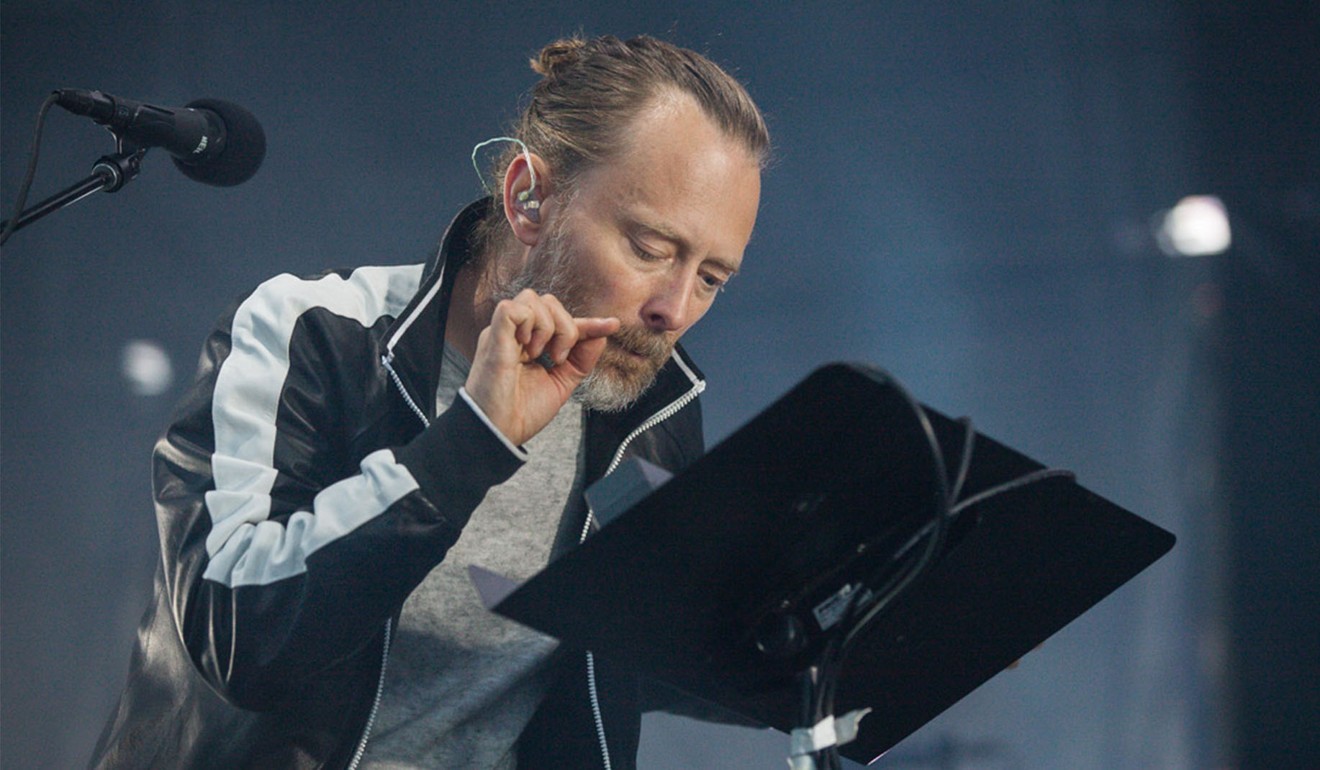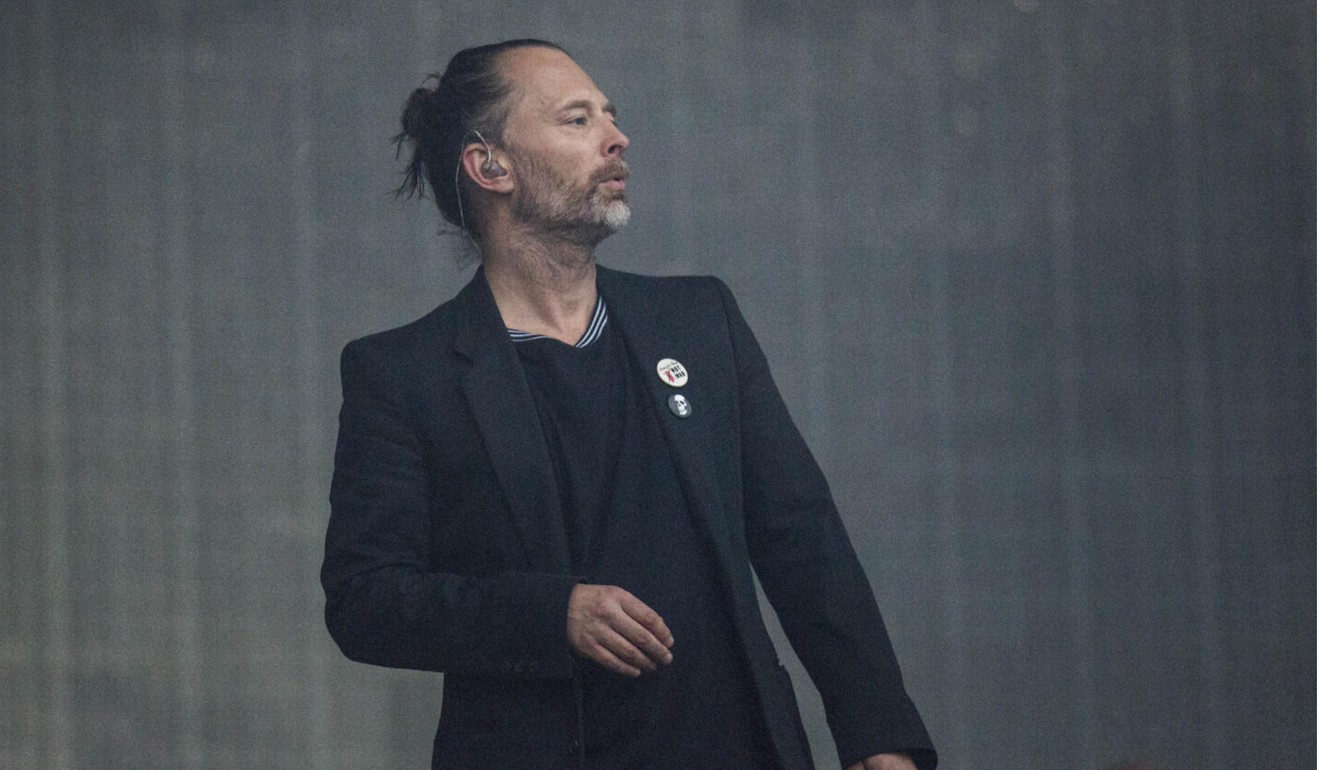
Radiohead’s Thom Yorke on writing the music for horror film Suspiria
- Yorke’s score, including pre-released tracks Suspirium, Volk and Has Ended, represents his first foray into film music
- Want some career tips on becoming a musician? Yorke gives six pieces of advice gleaned from his life in Radiohead
Radiohead’s music is practically synonymous with cinema. From the schizophrenic Everything in Its Right Place in 2001’s Vanilla Sky to Exit Music in the dystopian hit series Black Mirror, many iconic movie moments have been soundtracked by the influential British alternative rock band.
The Oxford-based five-piece even penned an opening track for the 2015 James Bond film Spectre, but lost out to Sam Smith’s Writing’s on the Wall. Guitarist Jonny Greenwood, meanwhile, has written the scores for landmark movies There Will Be Blood and Phantom Thread (the latter earning him an Oscar nomination).
Cinematic sounds: concert dedicated to Hong Kong film soundtracks
For frontman Thom Yorke, however, the upcoming horror remake Suspiria represents his first foray into film music, with him composing the entire score.
Last month Yorke gave a preview of his score by releasing the track Suspirium, which features his unmistakable melancholic vocals with piano progressions that are sad yet beautifully warm. Soon after came the tracks Volk and the psychedelic Has Ended, with drumming provided by his 17-year-old son Noah.
In an exclusive interview with the South China Morning Post, Yorke talks about the project’s challenges, taking guidance from Italian director Luca Guadagnino (Call Me By Your Name), and the inspirations behind his score for Suspiria, which is released this Friday.
This isn’t your first attempt at writing music for film. Did your experience writing for Spectre with the band inform your approach to this soundtrack?
This was my first attempt to write an entire score. My only experiences before have been simply writing [individual] songs for films. That is a fairly remote, disconnected experience. For the Bond film, I had just the script and hadn’t seen any footage. [For Suspiria], everything was essentially commissioned. Every element was a response to the script, and the ideas and themes in the film. Luca gave me tonnes of direction and it was strangely freeing, because there was no sense of my normal identity and no sense of my normal way of working.
When I work on solo stuff, there is a lot of playing or messing around, but it has been predominantly song-based. While doing [Suspiria], I discovered that melodies can provide many ways to go. It also gave me the opportunity to get really involved in post-effects and treatments in the studio.
Did Jonny Greenwood, or any other close friends, give any advice or feedback while you were creating the music? If so, what insights did they give you?
I had some good advice from Jonny, simple things, and encouragement from [long-time collaborator and producer] Nigel Godrich. Jonny advised me to work off-picture a lot, just staying with the idea in one’s mind as watching a scene too many times can paralyse you.
What inspirations did you draw from while composing this music? And how long did the process take to complete?
Suspiria was a long journey for me. It took over a year, on and off, and I found myself experimenting in ways I would have never expected. The strange thing was that when I reviewed the work at the end, there was an album in there. One that had a really strong identity!

I went back to my favourite [Ennio] Morricone soundtracks and found how simple the basic ideas were, the art and beauty also coming from the orchestration, the sounds, and how things are recorded. And I went back to my favourite Krautrock from the 1970s, which is when the film is set. I also listened to a lot of modern electronic composers.
How does it feel to hear an orchestra and choir perform music you’ve written and arranged?
I had always been very intimidated by the whole process. Watching Jonny over the years become an expert in it meant I was reluctant to start myself, not least because I can’t really read music. I assumed this would be a barrier I would never get through. I was happy to discover, with the help of the London Contemporary Orchestra, that this wasn’t the case.

The way I use my computer is very similar to scoring anyway. I know that I am now only scratching the surface, but it was really something to hear my work come to life and sound so complete when other musicians give it life. I hope I will have many opportunities to do this again.
Is there anything you’ve learned from this process that you’ll use in the future?
So many things – to work in my studio more like I am painting, and allowing the medium to dictate the direction for me. It has got me into using modular synthesisers, and it has given me a little more confidence in my technical abilities. That may sound daft, but one of the biggest things for me was Luca entrusting me with such a big project with the firm belief I could pull it off.

What advice would you give to any aspiring musicians or composers who are starting their careers?
I am terrible at this. When I get cornered by people and asked this my response tends to make me sound like one of my tutors from art college! So I will resist that habit. Here goes:
- Write down your ideas and review them with respect. It’s better to use a pen. Phones place good ideas in a vortex.
- Keep changing. Inspiration is change.
- Nothing is ever built immediately, but in layers. All good work has foundations in each day of your life, and all good work must survive your harshest scrutiny.
Thom Yorke uses BitTorrent to sell second solo album
- If you really are a good artist, then your work will help you make sense of the world, and you will not be able to do without it. A blind self-belief, a sense of entitlement and the strong conviction that recognition and success is what it means to be a musician are for those who will never be musicians.
- But never forget that everything you do is for an audience, and you must be able to stand before them with it in whatever way you can.
- Good music changes us, but it doesn’t have to be “pretty”. ’Cuz we ain’t pretty.
